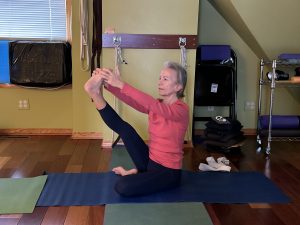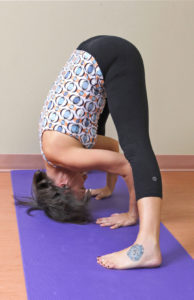After reading the title, you might be thinking, “Well isn’t that obvious; nothing new here”, and I would agree. But what if I added, all habitual behaviours that keep you from healing and growing are addictions. What is your response now? Again, nothing new here? Well, what if I reduce the statement to all habitual behaviours are addictions. Right about now, you are probably checking out your daily habits—brushing your teeth, washing your face or showering, drinking 5 to 8 glasses of water, jogging 3 miles, yoga, etc.—against my statement.
For the sake of clarity, the dictionary defines addiction as the fact or condition of being physically and mentally dependent on a particular substance or activity. However, when we hear the word addiction our mind jumps to obviously harmful behaviours such as overeating and drug or alcohol abuse. And yet, these surface behaviours or symptoms emerge from less visible, typically unconscious patterns meant to distract us from our discomfort, struggle and suffering. In other words, we depend on them for some type of relief.
To illustrate, let me share the story below as it was told to me. For the purpose of confidentiality, I refer to the storyteller as Sandy.
Sandy shared with me her addictive habit of procrastination, which she claims has been with her since early childhood. By the way, most of our unconscious behaviours can be sourced back to trauma in that time period and often in our family of origin. As Sandy described her procrastination pattern, she could connect its current thread of battered self-esteem back to repeated disapproval and belittlement from her father. What challenges her today is whenever she needs to complete a job for a client, her wounded self-esteem and conditioned disbelief trigger uncertainty and resistance to initiate the work. As a habitual procrastinator, Sandy recognizes she is motivated by fear of failure. Nonetheless, procrastinating gives her a “temporary hit of relief” from the increasing internal pressure to complete tasks. Over time, this immediate release of pressure or mini self-reward became her normal way to respond. Notably, psychology 101 teaches us that when our behaviour is rewarded, there is a greater likelihood we will repeat it. So, now Sandy has habituated a “neurotic self-defense behaviour” to protect her sense of self-worth. Fear is not rational. For Sandy, her personal value is so deeply attached to her performance that there is no room for mistakes. Instead of being opportunities to learn something new, a mistake is a failure. In her own words, “the internal pressure has to rise to a frightening point before I can take action.”
Unfortunately, by the time Sandy reached her mid-forties, she accumulated other unconscious habits, which also layered over her low self-esteem—
• compulsively eating for comfort rather than sustenance;
• distracting herself with new “shiny little bits” rather than disciplining her focus on the present moment task;
• avoiding uncomfortable feelings (i.e., rising resistance, uncertainty, fear) rather than leaning in to discover their source.
This process of covering over our deep-seated fears with layers and layers of unconscious habits amounts to massive misuse of our energy. Hence, why long-term suppression of struggle, suffering and discomfort ends in multiple diseases including anxiety, chronic fatigue and depression. When we free these huge pools of misused energy and apply them to create rather than suppress, the joy and lightness felt in our being is the evidence that we are on the right path.
So, how can we shift ourselves from self-sabotage to self-mastery? As Sandy stated, “awareness is the secret sauce.” Rather than try to retrain our limiting and harmful behaviours, which are merely symptoms of something gone wrong, we need to intervene on our own behalf at the source of our challenges. Clearing a source challenge out of our system will also clear several symptomatic patterns associated with it.
As Sandy did, we can track our symptomatic behavioural patterns back to their source because every difficulty or resistance we experience causes a physical contraction in the body. Rather than attending to the emotions or stories (thoughts) we tell ourselves, find the sensation or movement triggered in your body and hold your awareness there. Remember, several layers of pseudo-armour probably constructed a wall around your “discomfort.” A large part of the discomfort will feel like confusion and uncertainty. This is natural given you need to learn something new. However, confusion and uncertainty also trigger sensations in your body. Keeping your awareness on these physical sensations is enough to dismantle and break through the challenges.
With repeated exposure to awareness, eventually, resistance breaks down and leaves the body. What remains is clarity and lightness as well as a sense of delighted wonder at what is going to happen next. What emerges are enlightened stepping stones to a different way of being. And, of course, the massive amounts of energy now freed up from suffering go directly into creative production; the journey of self-mastery.
In conclusion, self-mastery does require us to repeat behaviours to supplement our learning and growth. This is called skill development. However, when we habituate these behaviours and they become unconscious, that is, we are no longer aware of their activation, we create dependency and eventually addiction. We stop learning and changing. Awareness, in the present moment, enables us to adapt when and as we need.





